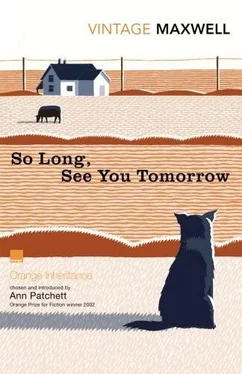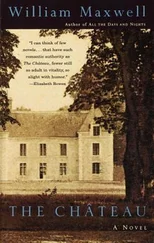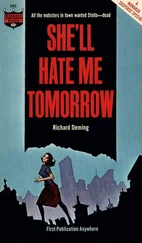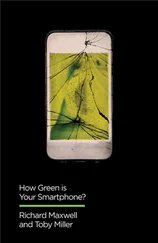I went straight home from school to the new house. Though as a grown man I have often stood and looked at the old house, I have never been inside it since that day, when a great many objects that I remember and would like to be reunited with disappeared without a trace. Victorian walnut sofas and chairs that my fingers had absently traced every knob and scroll of, mahogany tables, worn Oriental rugs, gilt mirrors, pictures, big square books full of photographs that I knew by heart. If they hadn’t disappeared then, they would have on some other occasion, life being, as Ortega y Gasset somewhere remarks, in itself and forever shipwreck.
The rented house had no yard to speak of, the porch steps were ten feet from the front sidewalk, and our house and the house next door were identical. The bites that woke me in the night proved to be bedbugs, concealed under a loose corner of the wallpaper, and the exterminator took care of them. My father probably thought that since we were not going to stay there it didn’t matter too much what the house was like. Or there may not, at that moment, have been anything better. I used to stand and compare the two identical houses, detail by detail, the way you compare repeats in wallpaper, hoping to find some small difference. I did not so much miss the old house as blot it completely out of my mind. We had gone down in the world and there didn’t seem to be anything to do but make the most of it. Ninth Street had the air of having been there since the beginning of time. Generations of children had grown up there, leaving their bicycles where people could fall over them, making leaf houses, climbing trees, playing run-sheep-run on summer evenings. The unpaved street we were now living on had no past and no future but only a wan present in which it was hard to think of anything to do.
One evening in October my father and Grace McGrath came down the stairs in her sister’s house and were married on the landing, by the Catholic priest, who couldn’t marry them in a church because my father was a Protestant. I was the only person present under the age of thirty. My older brother was away at college, my younger brother asleep in his crib. Now was the moment to forget about that door I had walked through without thinking, and about the void that could sometimes be bridged in dreams, and about the way things used to be when my mother was alive. Instead, I clung to them more tightly than ever, even as I was being drawn willy-nilly into my father’s new life.
The small towns in central Illinois nearly all owe their existence to the coming of the railroads in the decade before the Civil War. I have always had the impression that Lincoln is in some way different from the others but perhaps that is only because I lived there. It is the county seat and has two coal mines, now worked out. It has never had any sizable factories, and owes its modest prosperity to the surrounding farmland. In the year 1921 the shade trees that everywhere lined the residential streets had had time to come full size and made the town seem older than it actually was. It was not easy to tell when the houses were built, because their age was so frequently disguised by subsequent additions, and so they seemed timeless and as inseparably a part of the people who lived in them as their voices or their names or the way they combed their hair.
My father found most old things oppressive, but especially old houses with high ceilings and odd-shaped rooms that opened one out of another, offering a pleasant vista that required a great deal of coal to heat in the harsh Illinois winters. Intending to escape all this by building, he bought a double lot in Park Place, a subdivision so recently laid out that the trees were only five feet tall and had to be staked against the north wind. All but two of the existing houses were on the right-hand side of the street, facing a cow pasture that I think has not been built on to this day. The building lots were narrow and the houses much closer together than they were in the old part of town, but there was an ornamental brick gateway leading into the street and a grass plot down the center, and it was fashionable. In present-day Lincoln it is fashionable to live clear out in the country, surrounded by cornfields.
My father and my stepmother had seen a stucco house in Bloomington that they liked, and they got an architect to copy the exterior and then the three of them fiddled with the interior plans until they were satisfactory. I was shown on the blueprints where my room was going to be. In a short time the cement foundation was formed and the framing was up and you could see the actual size and shape of the rooms. I used to go there after school and watch the carpenters hammering: pung, pung, pung, kapung, kapung, kapung, kapung . . They may have guessed that I was waiting for them to pick up their tools and go home so I could climb around on the scaffolding but they didn’t tell me I couldn’t do this, or in fact pay any attention to me at all. And I had the agreeable feeling, as I went from one room to the next by walking through the wall instead of a doorway, or looked up and saw blue sky through the rafters, that I had found a way to get around the way things were.
When, wandering through the Museum of Modern Art, I come upon the piece of sculpture by Alberto Giacometti with the title “Palace at 4 A.M.,” I always stand and look at it — partly because it reminds me of my father’s new house in its unfinished state and partly because it is so beautiful. It is about thirty inches high and sufficiently well known that I probably don’t need to describe it. But anyway, it is made of wood, and there are no solid walls, only thin uprights and horizontal beams. There is the suggestion of a classic pediment and of a tower. Flying around in a room at the top of the palace there is a queer-looking creature with the head of a monkey wrench. A bird? a cross between a male ballet dancer and a pterodactyl? Below it, in a kind of freestanding closet, the backbone of some animal. To the left, backed by three off-white parallelograms, what could be an imposing female figure or one of the more important pieces of a chess set. And, in about the position a basketball ring would occupy, a vertical, hollowed-out spatulate shape with a ball in front of it.
It is all terribly spare and strange, but no stranger than the artist’s account of how it came into being. “This object took shape little by little in the late summer of 1932; it revealed itself to me slowly, the various parts taking their exact form and their precise place within the whole. By autumn it had attained such reality that its actual execution in space took no more than one day. It is related without any doubt to a period in my life that had come to an end a year before, when for six whole months hour after hour was passed in the company of a woman who, concentrating all life in herself, magically transformed my every moment. We used to construct a fantastic palace at night — days and nights had the same color, as if everything happened just before daybreak; throughout the whole time I never saw the sun — a very fragile palace of matchsticks. At the slightest false move a whole section of this tiny construction would collapse. We would always begin it over again. I don’t know why it came to be inhabited by a spinal column in a cage — the spinal column this woman sold me one of the very first nights I met her on the street — and by one of the skeleton birds that she saw the very night before the morning in which our life together collapsed — the skeleton birds that flutter with cries of joy at four o’clock in the morning very high above the pool of clear, green water where the extremely fine, white skeletons of fish float in the great unroofed hall. In the middle there rises the scaffolding of a tower, perhaps unfinished or, since its top has collapsed, perhaps also broken. On the other side there appeared the statue of a woman, in which I recognize my mother, just as she appears in my earliest memories. The mystery of her long black dress touching the floor troubled me; it seemed to me like a part of her body, and aroused in me a feeling of fear and confusion….”
Читать дальше












